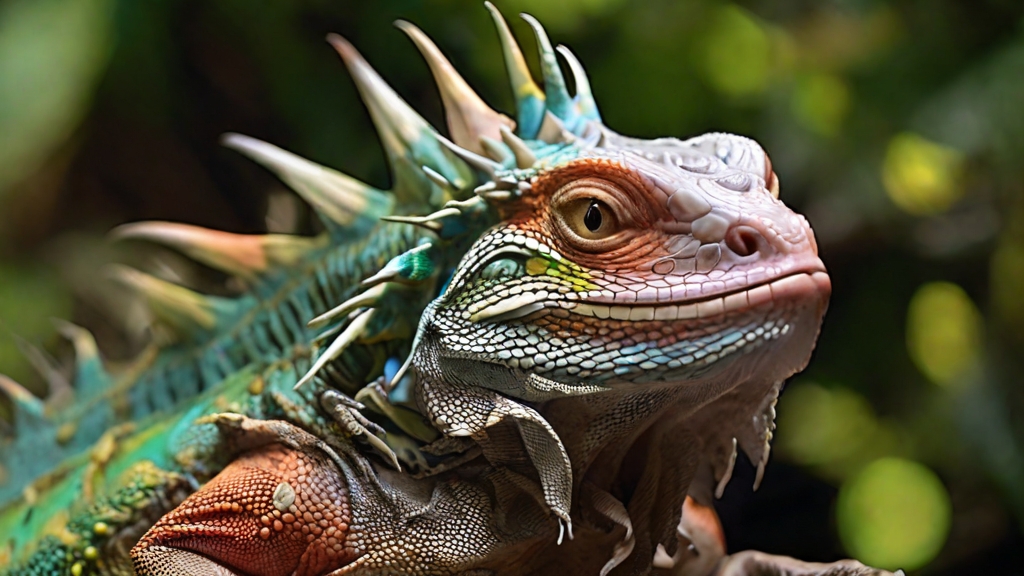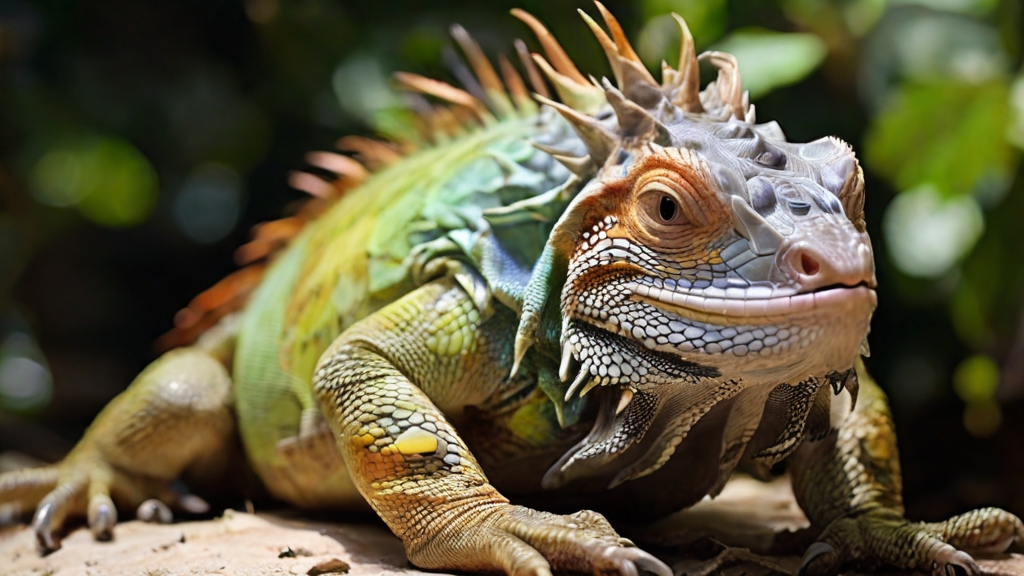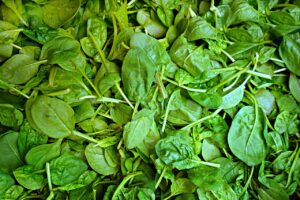If you’re an iguana owner, you may be wondering whether or not spinach is a suitable food for your scaly friend. While spinach can be a nutritious choice for humans, it’s important to consider the specific dietary needs of iguanas before incorporating it into their diet. In this article, we will explore the topic of whether or not iguanas can safely consume spinach, and what you need to know about feeding it to your reptile companion.
Understanding the Nutritional Needs of Iguanas
Before we delve into the topic of spinach, it’s important to understand the nutritional requirements of iguanas. These herbivorous creatures thrive on a diet that is high in fiber and low in fat. They require a balanced intake of vitamins, minerals, and calcium to support their overall health and well-being. Leafy greens play a crucial role in an iguana’s diet, providing essential nutrients such as vitamin A, vitamin C, and iron.
Is Spinach Safe for Iguanas?
While spinach is often touted as a nutritious food for humans, it may not be the best choice for your iguana. Spinach contains high levels of oxalates, which can bind to calcium and potentially lead to the formation of calcium oxalate crystals in the iguana’s kidneys. This can result in kidney damage or even kidney failure. Furthermore, spinach is also high in oxalic acid, which can interfere with the absorption of calcium in the iguana’s body. As a result, feeding spinach to your iguana may do more harm than good.
Potential Health Benefits of Spinach for Iguanas
While spinach may pose risks to iguanas, it’s important to note that there are other leafy greens that can provide similar nutritional benefits without the potential drawbacks. Leafy greens such as collard greens, mustard greens, and dandelion greens are excellent alternatives, as they are low in oxalates and high in valuable nutrients. These greens can contribute to the overall health and vitality of your iguana, supporting their immune system, bone health, and digestion.
Risks and Potential Problems with Feeding Spinach to Iguanas
As mentioned earlier, spinach contains high levels of oxalates and oxalic acid, which can have adverse effects on an iguana’s health. Feeding spinach to your iguana on a regular basis can increase the risk of kidney damage, kidney stones, and calcium deficiency. These conditions can significantly impact your iguana’s quality of life and may require veterinary intervention. It is always better to err on the side of caution and avoid feeding spinach to your iguana altogether.
How to Prepare Spinach for Your Iguana’s Diet
If you still wish to offer your iguana small amounts of spinach occasionally, it is crucial to properly prepare the spinach to minimize the risks associated with it. Thoroughly wash the spinach leaves to remove any dirt or residues. It is advisable to lightly steam or blanch the spinach to reduce its oxalate content. Be sure to remove any stems or tough parts before offering the spinach to your iguana. Remember, spinach should only be given as an occasional treat and not as a staple food.
Recommended Portion Sizes for Feeding Spinach to Iguanas
When providing spinach or any other leafy greens to your iguana, it is important to consider portion sizes. The bulk of an iguana’s diet should consist of other leafy greens that are lower in oxalates and higher in nutrients. Generally, a small portion of spinach or other high-oxalate greens should be limited to less than 10% of your iguana’s overall diet. The majority of their diet should consist of other leafy greens, vegetables, and occasionally fruits.
Other Leafy Greens to Consider for Your Iguana’s Diet
Instead of spinach, there are several other leafy greens that are safer and more nutritious options for your iguana. Collard greens, mustard greens, and dandelion greens are excellent choices that provide a variety of essential nutrients without the risks associated with spinach. These greens can be easily incorporated into your iguana’s diet and offer a range of flavors and textures to keep their meals interesting and enjoyable.
Creating a Balanced Diet for Your Iguana
To ensure your iguana receives a balanced diet, it is essential to offer a variety of leafy greens, vegetables, and occasional fruits. Aim for a diverse selection of foods that provide a wide range of nutrients. Consult with a reptile veterinarian or a knowledgeable reptile nutritionist to create a well-rounded diet plan that meets your iguana’s specific nutritional needs. Remember, a balanced diet is key to maintaining optimal health for your scaly friend.
Monitoring Your Iguana’s Health and Digestion After Introducing Spinach
If you have recently introduced spinach or any new food into your iguana’s diet, it’s crucial to closely monitor their health and digestion. Keep an eye out for any changes in their appetite, behavior, or stool consistency. If you notice any signs of gastrointestinal distress, such as diarrhea or constipation, discontinue feeding spinach and consult a reptile veterinarian for further guidance. Regular veterinary check-ups are also important to monitor your iguana’s overall health and well-being.
Conclusion: Can Iguanas Safely Consume Spinach in Their Diet?
In conclusion, it is best to avoid feeding spinach to iguanas due to its high oxalate and oxalic acid content. While spinach is a nutritious choice for humans, it can pose significant risks to the health of iguanas, particularly their kidneys and calcium balance.
Instead, opt for other leafy greens such as collard greens, mustard greens, and dandelion greens, which provide similar nutritional benefits without the potential drawbacks.
A varied and balanced diet is essential for the well-being of your iguana, so consult with a reptile veterinarian or nutritionist to ensure you are providing the best possible diet for your scaly friend.




